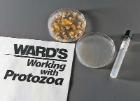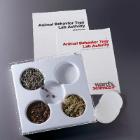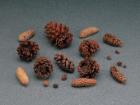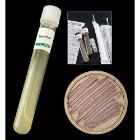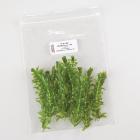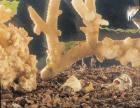You Searched For:
420 results were found
Utensils
Catalog Number:
(470179-630)
Description:
Organisms with Characteristics of Two Kingdoms
Catalog Number:
(470190-600)
Description:
Which environment is more appealing?
Catalog Number:
(470189-274)
Description:
Ceratophyllum
Catalog Number:
(470092-310)
Description:
Cone, Conifer, Set/18 (6-spruce, 6-cedar, 6-Pine)
Description:
Penicillium notatum is a deuteromycete that produces penicillin. It is available in normal and high-yield strains.
Description:
An excellent aquarium oxygenator, Elodea densa is great for teaching plant respiration, photosynthesis, and plasmolysis.
Description:
Produces orange pigments.
Description:
Use Sordaria fimicola to allow students to visualize the results of crossing over during cell division.
Description:
Found on dental plaque, implicated in cavities. No Lancefield group shown, gamma hemolysis.
Catalog Number:
(470179-098)
Description:
Colorless, most widely dispersed of the Serratia species.
Catalog Number:
(470179-636)
Description:
Candida albicans
Catalog Number:
(470180-324)
Description:
The marine hermit crab is a scavenger and preys on small animals.
Description:
Grows on dead tissues. Novobiocin resistant (S. epidermidis and S. aureus novobiocin sensitive).
Catalog Number:
(470176-388)
Description:
Penicillium chrysogenum
Description:
Isolated from sewage, human intestines, and urinary tract infections. Spreading colonies are seen on agar growth medium.
Description:
The presence of A. viscolactis in milk is a common cause for sliminess or "ropiness".
Inquire for Price
Stock for this item is limited, but may be available in a warehouse close to you. Please make sure that you are logged in to the site so that available stock can be displayed. If the
Stock for this item is limited, but may be available in a warehouse close to you. Please make sure that you are logged in to the site so that available stock can be displayed. If the
This product is marked as restricted and can only be purchased by approved Shipping Accounts. To apply for a shipping account number, click here. If you need further assistance, call Customer Service at 800-962-2660 or email [email protected].
-Additional Documentation May be needed to purchase this item. A VWR representative will contact you if needed.
This product has been blocked by your organization. Please contact your purchasing department for more information.
The original product is no longer available. The replacement shown is available.
Limited quantities of this product are available. To check availability or place an order, call Customer Service at 800-962-2660 or email [email protected].
|
|||||||||





